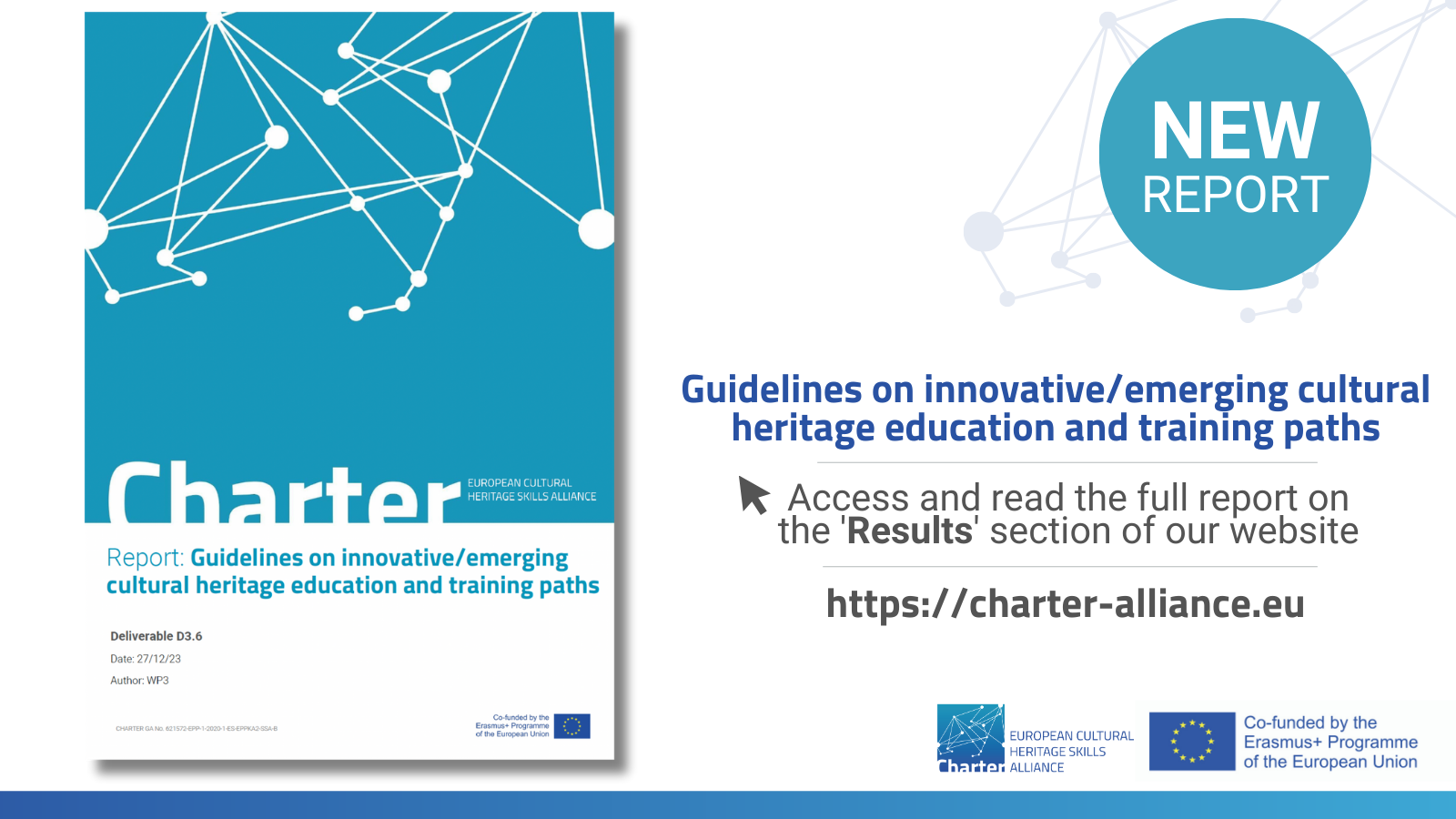
CHARTER Alliance presents the 8 education and training pathways and curricula for the future of cultural heritage
What are the 8 education and training pathways and occupations for the future of the cultural heritage sector?
As the result of a thoughtful, in-depth and collaborative process including partners and external stakeholders’ contributions, the project presents its report Guidelines on innovative and emerging cultural heritage education and training paths, containing 8 curricula pathways to be developed in light of the future needs and challenges of the sector.
In the form of guidelines, this report outlines each education and training pathway presenting the justification and context of the proposal, samples of occupations and professional profiles deriving from them, specific key structural elements including learning outcomes, heritage function covered, Education and Training (E&T) sector targeted, EQF level, trainer/educator profile, and curricula outlines detailing the practical potential application.
Among the different pathways presented, CHARTER has addressed some of the most pressing matters in the sector such as the safeguarding of traditional crafts, community engagement, sustainability in built heritage and landscape, the digital transition, collaboration with other sectors, restitution of cultural property, illicit trafficking, decolonisation, international cooperation, and many more. This new result aims to act as a versatile framework poised for seamless integration into regional and national education systems or national/regional variations in skills needs and gaps.
The guidelines are designed to provide:
- Steadfast support to education and training providers in the creation or modification of cultural heritage curricula.
- Assistance to cultural heritage organisations and employers in formulating bespoke in-house training for their staff.
- Guidance to prospective students in the discerning selection of heritage Education and Training programmes.
- Insights to policymakers navigating the complexities of legislating pertinent laws and regulations.
- Scholarly direction for researchers in the field of heritage.
These guidelines transcend the conventional by not only outlining education and training pathways but by casting a visionary spotlight on the future professional profiles indispensable for the heritage sector. They serve as a strategic compass, steering the sector towards a sustainable future.
You can find the full report attached.
About CHARTER
CHARTER brings together and represents the whole range of the European cultural heritage sector. The 47 project partners strive to make cultural heritage's value apparent and create a resilient and responsive sector.
ERRIN and six of its members pioneered this first sectoral skills blueprint project under Erasmus+ that included regions from the start and took a solid regional focus when investigating the skills demands and supply in the sector. You can read the full report about the six regional case studies conducted by ERRIN's members here.
- Learn more about the role of ERRIN members in the CHARTER project
- Learn more about the CHARTER Alliance
- Learn more about the other CHARTER project results
- Subscribe to the CHARTER newsletter
- Astrid Hannes
- 09/07/2024
-
Working Group
